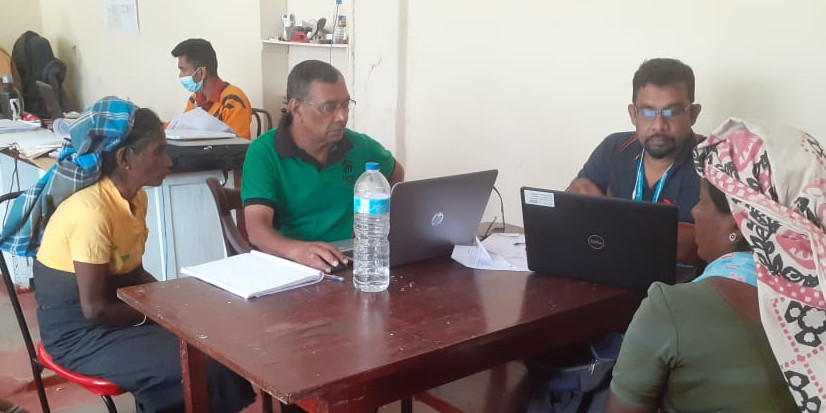Impact of the economic crises in Sri Lanka
Published: Dec 10, 2022 Reading time: 3 minutes Share: Share an articleSri Lanka is suffering the worst social, economic, and political crises in its history. These crises are driven by the country's financial situation and by overspill from crises in the country's surroundings. The people of Sri Lanka have been facing enormous problems since March 2022, which continue to this day at various levels and varying degrees.

Because of a fuel and gas crisis, the entire country has been forced to queue for fuel and gas. This situation has caused incredible frustration among the people. Many have been left jobless due to fuel shortages and power cuts, as these problems also affect industries and businesses. The people of Sri Lanka are suffering as they face daily power cuts and shortages of necessities such as fuel, food and medicine.
In addition, inflation in the country has reached critical levels, and inflation in food alone has exceeded 90 %, leaving millions facing malnutrition. Many Sri Lankans have resorted to negative coping mechanisms, such as eating less or less nutritious food because prices are prohibitively high. With this, many other problems have emerged, such as increased school dropouts.
Sri Lanka does not have enough foreign currency to buy the necessary goods from abroad—including essential medications. The government's sudden decision to switch to organic fertilisers and ban the import of chemical fertilisers has led to a decline in domestic agricultural production of almost 50%. The lack of foreign currency has also led the government to halt many imported items, including all building materials—this has destroyed the construction and small business sectors. Economic mismanagement has plunged millions of people into poverty and threatened their right to health, education, and an adequate standard of living.
In response to the political and economic instability in the country, Sri Lankans have begun taking to the streets and protesting against the government; this has led to the prime minister's resignation. Sri Lanka's new president and prime minister are trying to negotiate with international financial institutions and governments, especially the IMF, to obtain a bailout package for the country, without which the country will go bankrupt.
The humanitarian situation worsens daily as people cannot afford to meet their needs. There are humanitarian organisations providing support, but this only covers a fraction of the people because the needs are enormous compared to the available resources. UN OCHA submitted a HNP in June 2022, initially to September 2022, but now extended to the end of 2022. This HNP estimates that 5.7 million people require humanitarian support, of which 4.9 million are food insecure.
People in Need in Sri Lanka
Given our long-standing cooperation with Sri Lanka in the past and the ongoing crises in Sri Lanka, People in Need has decided to provide support to neglected and deprived people of the country.
In cooperation with the Sri Lankan NGO Habitat for Humanity, we plan to provide financial support to nearly 850 families. Based on a need assessment in the country, we decided to support the historically vulnerable and marginalised populations living on plantations, which are severely affected by the economic crisis. The project has started, and we hope this will be some relief for its beneficiaries in the plantations in the central province. Each family will receive cash assistance of SLR 12,000, provided through our Club of Friends fund.

